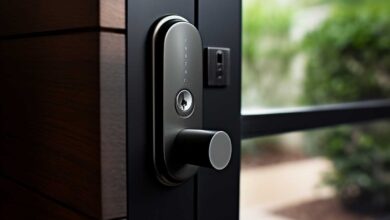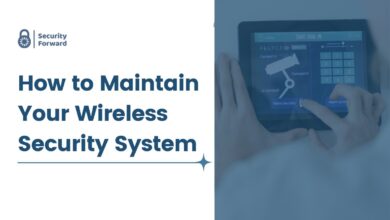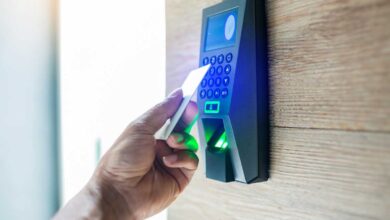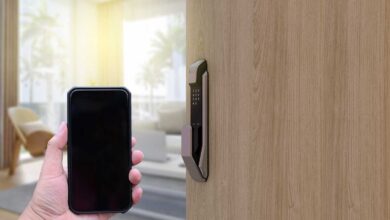Choosing the Right Type of Key for Your Home
KEY TAKEAWAYS
Ensuring the safety of this sacred space is paramount, and the first line of defense often begins with choosing the right type of key for your home. From the age-old traditional keys to cutting-edge digital solutions, the realm of home security has witnessed a transformation like no other. Every year, there are 5 million burglaries in the United States, and out of these, 62.8% are home invasions. This comprehensive guide delves deep into the world of keys and home security systems, offering insights, considerations, and expert advice to help you navigate the myriad of options available.
Whether you’re a new homeowner or looking to upgrade your existing security measures, this article aims to equip you with the knowledge to make an informed decision that best suits your needs and ensures the safety of your loved ones.
What Is A Key
A key is a device that is used to operate a lock, typically by engaging a series of pins or discs to allow or block an opening mechanism. Keys are typically made of metal and are small enough to be carried in a pocket or purse. They can come in various shapes and sizes depending on the type of lock they are designed to open. Keys are used for a variety of purposes, including securing homes, vehicles, safes, and other valuable items.
Benefits Of Using Keys
-
Enhanced Security: One of the primary benefits of using keys is the enhanced security they provide. A well-designed key and lock system can protect your facility, assets, and belongings from unauthorized access.
-
Accountability: With keys, especially electronic key management systems, there’s increased accountability. You can track who is using the keys when they checked them out, and if they returned them, ensuring that only authorized individuals have access.
-
Difficult To Duplicate: While traditional physical keys can be copied with some effort, electronic keys, like key fobs, are much harder to duplicate, offering an added layer of security.
-
Cost-Effective: Traditional keys are generally less expensive than electronic key cards, making them a cost-effective solution for many homeowners.
-
Unhackable Quality: Physical keys are often preferred in various sectors for their “unhackable” quality. Unlike digital systems that can be vulnerable to cyber-attacks, a physical key doesn’t have this risk, ensuring robust security.
Types Of Keys
Several different types of keys can be used to secure your premises. The right one depends on your needs:
Traditional Keys
Traditional keys are the most common and have been used for centuries. They are typically made of metal and are inserted into a lock to unlock a door. The advantages of traditional keys include:
-
Simplicity: They don’t require any technology or power source to operate.
-
Reliability: They are less likely to malfunction compared to electronic systems.
-
Cost-Effective: Traditional keys and locks are generally less expensive than their electronic counterparts.
However, they also have their drawbacks. If lost or stolen, anyone in possession of the key can gain access, and duplicating these keys is relatively easy.
Electronic/Digital Keys
Electronic or digital keys are a modern alternative to traditional keys. They use technology to grant or deny access, and they come in various forms:
-
Smart Locks: These can be controlled using a smartphone app.
-
Key Cards: Often used in hotels or businesses, they are swiped or tapped to gain access.
-
Biometric Systems: These use unique human characteristics, like fingerprints, to grant access.
The advantages of electronic keys include enhanced security features, the ability to change codes or access permissions quickly, and integration with other smart home systems. However, they can be more expensive and may require regular updates or maintenance.
Lever Locks
Lever locks are commonly found on interior doors and offer a physical barrier against unauthorized entry. They require a specific key with a unique pattern to lift the lever and unlock the door. Lever locks are known for their durability and are harder to pick than some other traditional locks.
Mortise Locks
Mortise locks are considered more secure than regular locks. They are installed inside the door, making them harder to tamper with. A mortise lock requires a key to operate both from the inside and outside, providing an added layer of security. They are commonly used in older homes and commercial buildings.
Pin Codes
Pin codes are numerical codes entered into a keypad to gain access. They are commonly used in electronic security systems. The advantage of pin codes is that they can be easily changed, offering flexibility and increased security. However, it’s essential to choose a secure pin and change it regularly to prevent unauthorized access.
Access Codes
Similar to pin codes, access codes are used in electronic security systems. They can be numerical or alphanumeric and are often used in more advanced security systems. Access codes can be assigned to specific individuals, allowing homeowners to track who enters and exits the property.
Voice Commands And Controls
With the rise of smart home technology, voice commands have become a popular way to control home security systems. Systems integrated with voice assistants like Amazon Alexa, Google Assistant, or Apple’s Siri allow homeowners to arm or disarm their security systems, lock doors, or even view camera feeds using simple voice commands. This hands-free control offers convenience, but it’s essential to ensure that voice recognition is accurate to prevent unauthorized access.
Smart Home Security Systems With Keyless Entry
The evolution of home security has been remarkable, with the latest advancements being keyless entry systems. These systems offer homeowners the convenience of accessing their homes without the need for traditional keys, enhancing security and providing a seamless experience.
Smart Locks And Door Locks
Smart locks are at the forefront of keyless entry systems. They offer homeowners the ability to lock and unlock their doors using various methods, such as smartphones, key fobs, or even voice commands. Some of the benefits of smart locks include:
-
Remote Access: Control and monitor your door from anywhere using a smartphone app.
-
Integration: Many smart locks can be integrated with other smart home devices and systems.
-
Temporary Access: Grant temporary access to guests or service providers without giving them a physical key.
-
History Logs: Keep track of who enters and exits your home with time-stamped logs.
Google Assistant And Apple Watch Compatibility
The integration of home security systems with popular platforms like Google Assistant and Apple Watch has made controlling and monitoring your home more convenient than ever. With voice commands, homeowners can arm or disarm their security systems, check the status of doors and windows, and even control smart locks. Apple Watch users can receive instant notifications about security breaches and control various aspects of their security system right from their wrist.
August Wi-Fi Smart Lock
The August Wi-Fi Smart Lock is one of the leading smart locks in the market. Some of its notable features include:
-
Compact Design: It’s 45% smaller than its predecessors, making it more sleek and unobtrusive.
-
Easy Installation: The lock can be easily installed on the inside of your door, allowing you to keep your existing keys.
-
Built-In Wi-Fi: No need for additional bridges or hubs; the lock connects directly to your home Wi-Fi.
-
Remote Access: Lock or unlock your door from anywhere using the August app.
-
Integration: The lock is compatible with popular voice assistants and can be integrated with other smart home devices.
-
Guest Access: Provide temporary access to guests with virtual keys that can be set for specific times and days.
Considerations Before Purchasing A Key System For Your Home
When it comes to securing your home, choosing the right key system is crucial. With the myriad of options available in the market, it can be overwhelming to decide which system is the best fit for your needs. Here are some essential considerations to keep in mind before making a purchase:
-
Define Your Requirements: Before diving into the vast world of key systems, it’s essential to understand your specific needs. Are you looking for a system that caters to standard keys, oversized keys, or bunches of keys? Knowing your requirements will help narrow down your choices and ensure you select a system that aligns with your needs.
-
Number Of Hooks Needed: Consider the number of keys you need to store. This will determine the size of the key cabinet or storage solution you require. Some systems offer expandable options, allowing you to add more hooks as your needs grow.
-
Future Expansion: Always think ahead. If you plan to expand your home or add more secured areas in the future, it’s wise to invest in a key system that can accommodate this growth. Opt for cabinets that allow the addition of new panels or hooks over time.
-
Locking Mechanism: The security of your key system largely depends on its locking mechanism. While standard cabinets come with a basic cam lock, there are advanced options like keyless entry systems, mechanical keypads, and combination locks. Choose a mechanism that offers the level of security and convenience you desire.
-
Aesthetics: While functionality is paramount, aesthetics shouldn’t be overlooked. The key system should complement the interior design of your home. Many key cabinets are available in various colors and designs, ensuring they blend seamlessly with your décor.
-
Reliability And Durability: Invest in a key system that is robust and long-lasting. It’s essential to ensure that the system you choose is made of durable materials and comes with a warranty. Research the brand’s reputation and read reviews to gauge the product’s reliability.
-
Price: Budget is a significant factor for many homeowners. While it’s essential to invest in a quality key system, it’s equally important to ensure it fits within your budget. Compare prices, features, and reviews to find a system that offers the best value for money.
-
Key Tracking And Management: For those opting for advanced key management systems, consider features like key tracking. This feature allows you to monitor who accesses which keys and when, providing an added layer of security and accountability.
-
Integration With Other Systems: If you have other security or smart home systems in place, consider how the key system will integrate with them. Seamless integration can enhance functionality and provide a more cohesive security solution.
-
User-Friendliness: The key system should be easy to use for all family members. Whether it’s accessing keys, adding new ones, or making changes to the system, the process should be straightforward and hassle-free.
Frequently Asked Questions
To help you in choosing the right type of key for your home, we’ve answered some of the most frequently asked questions.
What is the difference between traditional keys and electronic/digital keys?
Traditional keys are physical metal keys used to unlock doors, while electronic/digital keys use technology, such as smartphones or key cards, to grant or deny access.
Are smart locks secure?
Yes, smart locks offer enhanced security features, including encryption and integration with other security systems. However, like all technology, it’s essential to keep them updated and regularly review security settings.
Can I integrate my key system with voice assistants like Google Assistant or Apple’s Siri?
Many modern key systems, especially smart locks, offer integration with popular voice assistants, allowing homeowners to control their security using voice commands.
How often should I change my pin or access code?
For optimal security, it’s recommended to change your pin or access code every 3-6 months or whenever you suspect it might have been compromised.
What should I consider when choosing a locking mechanism for my key system?
Consider factors like the level of security required, ease of use, potential integration with other systems, and your budget.
Is it expensive to upgrade from a traditional key system to a smart key system?
The cost varies based on the brand, features, and installation requirements. While smart systems might have a higher initial cost, they offer enhanced features and security that can be cost-effective in the long run.
Choosing The Right Lock For Your Home
Securing your home is a paramount responsibility, and the key system you choose plays a pivotal role in this endeavor. Whether you’re inclined towards traditional mechanisms or are looking to embrace the advancements of smart home technology, it’s essential to make an informed decision. This guide aims to provide you with a holistic view of the available options, ensuring you select a system that aligns with your security needs, lifestyle, and budget. Remember, the safety of your home is an investment in the well-being of your loved ones, so take the time to choose wisely and ensure peace of mind.
Learn more about securing your home by reading our comprehensive guide on the pros and cons of smart door locks . Visit Security Forward to find more information and browse through the available resources.





